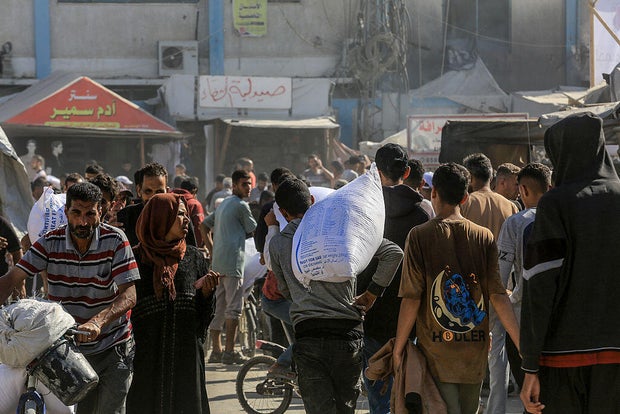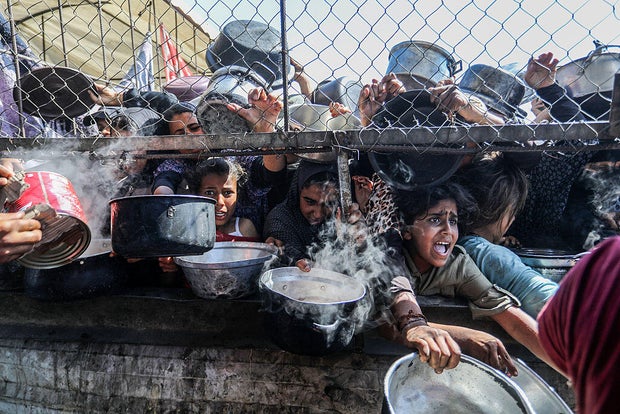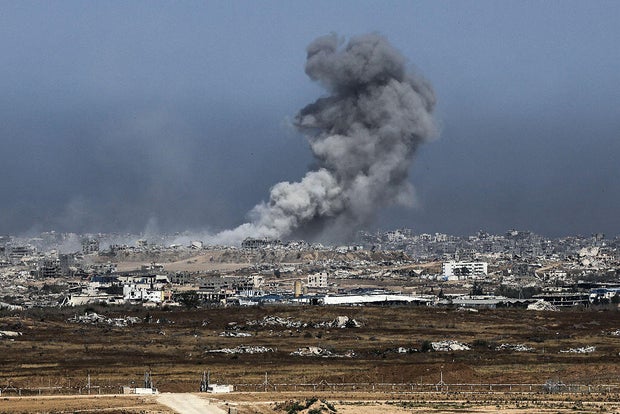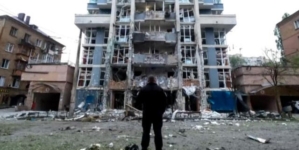-
2025 Eagles game-by-game predictions: Repeating won’t come easy for the champs - 7 mins ago
-
Győr Defends Its Title in Women’s Handball Champions League for Seventh Time - 13 mins ago
-
Spot fake online stores, avoid Facebook subscription scams - 18 mins ago
-
Senior Labrador Hasn’t Seen Owner for 2 Months, Tears over Their Reunion - 25 mins ago
-
U.S. steelmakers’ shares jump after Trump hikes industry tariffs to 50% - 28 mins ago
-
2 people arrested in cold case of man found shot to death at home in 2003 - 37 mins ago
-
Bulgaria Becomes Key Partner in Hungary’s Energy Security - 51 mins ago
-
2025 NFL odds: Back Cardinals to eclipse regular-season win total - 52 mins ago
-
Laughter As Woman Realizes Mouse She’s Trying To Catch Thinks It’s a ‘Pet’ - about 1 hour ago
-
Beloved photographer and father killed and dismembered, but why? - about 1 hour ago
Hamas responds to Gaza ceasefire proposal
Hamas said Saturday it has responded to a U.S.-led proposal for a temporary ceasefire in the Gaza Strip, which Israeli officials have approved, but will seek amendments. Additional details of the response were not immediately known.
In a statement, the militant group said its response aims to achieve a permanent ceasefire, the Israeli military’s complete withdrawal from Gaza and the “unimpeded flow of humanitarian aid.” Hamas said in their statement that the agreement would include the release of 10 living Israeli hostages and the remains of 18 hostages in exchange for a number of Palestinian prisoners.
A senior Hamas official tells The Associated Press that “there some notes and amendments to some points, especially on the U.S. guarantees, the timing of hostage release, the delivery of aid and the withdrawal of Israeli forces.” The official spoke on condition of anonymity due to the sensitivity of the talks.
The office of Steve Witkoff, the U.S. envoy to the Middle East, said in a statement on social media on Saturday that it had received Hamas’ response to the proposal, but it was “totally unacceptable and only takes us backward.”
“Hamas should accept the framework proposal we put forward as the basis for proximity talks, which we can begin immediately this coming week,” the statement said. “That is the only way we can close a 60-day ceasefire deal in the coming days in which half of the living hostages and half of those who are deceased will come home to their families and in which we can have at the proximity talks substantive negotiations in good-faith to try to reach a permanent ceasefire.”
Basem Naim, a member of Hamas’ political bureau, said in a statement that Hamas did not reject Witkoff’s proposal.
“Nevertheless, we now responded positively and responsibly in a manner that fulfilled the minimum of demands and aspirations of our people,” Naim said in a statement. “Why, each time, is the Israeli response considered the only response for negotiation? This violates the integrity and fairness of mediation and constitutes a complete bias towards the other side.”
A draft of the deal obtained by CBS News indicated that Israel would release 125 “life sentence” prisoners and 1,111 Palestinian detainees as part of the deal, as well as 180 deceased Palestinians. The draft also outlined that humanitarian aid will be sent into Gaza immediately once Hamas agrees to the deal.
There was no immediate response from mediators or Israeli officials.
President Trump said on Friday that negotiators were nearing a deal.
U.N. food trucks blocked, offloaded by hungry Palestinians
Meanwhile, the U.N. Food Program said Saturday that 77 trucks carrying aid, mostly flour, were stopped by hungry people who took the food before the trucks were able to reach their destination.
“After nearly 80 days of total blockade, communities are starving – and they are no longer willing to watch food pass them by,” the WFP said in a statement. “This delivery is a start, but it’s not nearly enough.”
Abed Rahim Khatib/Anadolu via Getty Images
A nearly three-month Israeli blockade on Gaza has pushed the population of nearly 2.3 million people to the brink of famine. While the pressure slightly eased in recent days as Israel allowed some aid to enter, organizations say there still isn’t nearly enough food getting in.
The United Nations has called Gaza the “hungriest place on Earth.”
“To restore home, ease fear, and prevent further chaos, we must flood communities with food – now,” the WFP said. “Only consistent, large-scale aid can rebuild trust.”
A witness in the southern city of Khan Younis told The Associated Press the U.N. convoy was stopped at a makeshift roadblock and offloaded by desperate civilians in their thousands. Most people carried bags of flour on their backs or heads. He said at one point a forklift was used to offload pallets from the stranded trucks. The witness spoke on condition of anonymity because of fear of reprisal.
Abed Rahim Khatib/Anadolu via Getty Images
The United Nations said earlier this month that Israeli authorities have forced them to use unsecured routes within areas controlled by the Israeli military in the eastern areas of Rafah and Khan Younis, where armed gangs are active and trucks were stopped.
Israel’s military didn’t immediately respond for comment.
An internal document shared with aid groups about security incidents, seen by the Associated Press, said there were four incidents of facilities being looted in three days at the end of May, not including the convoy on Saturday.
Abed Rahim Khatib/Anadolu via Getty Images
The U.N. says it’s been unable to get enough aid in because of fighting. On Friday, U.N. spokesperson Stephane Dujarric said it only picked up five truckloads of cargo from the Palestinian side of the Kareem Shalom crossing, and the other 60 trucks had to return due to intense hostilities in the area.
An Israeli official said his country has offered the U.N. logistical and operational support but “the U.N. is not doing their job.” Instead, a new U.S- and Israeli-backed foundation started operations in Gaza this week, distributing food at several sites in a chaotic rollout. Israel says the Gaza Humanitarian Foundation will replace the massive aid operation that the U.N. and others have carried out throughout the war.
It says the new mechanism is necessary, accusing Hamas of siphoning off large amounts of aid. The U.N. denies that a significant diversion takes place.
Cindy McCain, the WFP’s executive director, told “Face the Nation with Margaret Brennan” last Sunday that there is no evidence to support Israel’s claims that Hamas is responsible for the looting of their aid trucks.
“These people are desperate, and they see a World Food Programme truck coming in, and they run for it,” she said. “This doesn’t have anything to do with Hamas or any kind of organized crime, or anything. It has simply to do with the fact these people are starving to death.”
Tsafrir Abayov/Anadolu via Getty Images
Meanwhile, Israel is continuing its military campaign across Gaza.
The Gaza Health Ministry said that at least 60 people were killed by Israeli strikes in the last 24 hours. It said three people were shot by Israeli gunfire early Saturday morning in the southern city of Rafah. Three other people were killed, parents and a child, when their car was struck in Gaza City.
The war began when Hamas terrorists attacked Israel on Oct. 7, 2023, killing around 1,200 people, most of them civilians, and taking 250 hostages. Of those taken captive, 58 remain in Gaza, but Israel believes 35 are dead, and Prime Minister Benjamin Netanyahu has said there are “doubts” about the fate of several others.
Israeli strikes have killed more than 54,000 Gaza residents, mostly women and children, according to the Hamas-run Gaza Health Ministry, which does not distinguish between civilians and combatants in its tally.
Source link
































